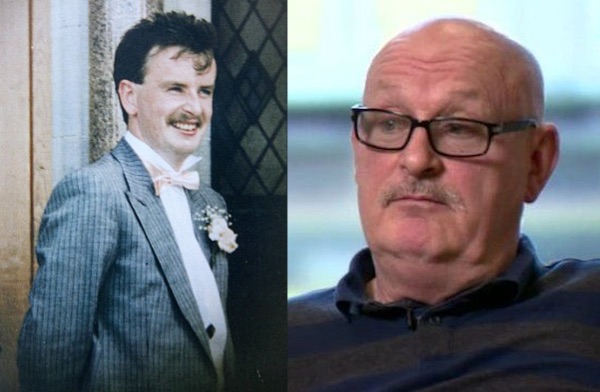
Relatives of people killed by the British army have reacted angrily after a Westminster committee recommended a halt to the investigation and prosecution of soldiers for war crimes committed during the conflict.
The parliament’s ‘Defence Committee’ has urged the British government to introduce a ‘statute of limitations’ for soldiers who committed crimes in the north of Ireland from the start of the conflict up to the signing of the Good Friday Agreement in 1998.
The committee also said that it would encourage the next government to extend this to include former members of the RUC and other Crown force personnel.
Sean McAnespie (pictured, right), whose brother Aidan was shot dead by the British army in 1988, condemned the proposals.
The 23-year-old was shot seconds after walking through a British army checkpoint on his way to GAA grounds near Aughnacloy in County Tyrone in 1988.
Manslaughter charges brought against the soldier involved, Grenadier Guardsman David Jonathan Holden, were dropped in 1990. He was later fined for ‘negligent discharge of his weapon’ and allowed to return to duty.
“I don’t agree with it,” Mr McAnespie said. “People are entitled to justice and truth. I think it’s very insensitive to the nationalist people of Ireland, to come out with this when talks about the peace process are going on.”
Mr McAnespie said he believes the British establishment is attempting to point score.
“What they are doing is rubbing our noses in it, not just our family but the nationalist community.”
The McAnespie family lawyer Darragh Mackin described the development as “disturbing news”.
“Victims and the Families of victims can however take comfort in that any such act is deeply flawed and not legally viable,” he said.
“There is a considerable body of jurisprudence that enshrines the importance of criminal justice in the context of historic investigations into the right to life, and the military and police are not and cannot be exempt from that principle.”
Sinn Fein’s Gerry Kelly said the recommendations are “an insult to victims and survivors”.
“There can be no immunity for people who have murdered Irish citizens,” he said. “Everyone should be equal before the law and no one should be above the law.”
![[Irish Republican News]](https://republican-news.org/graphics/title_gifs/rn.gif)
![[Irish Republican News]](https://republican-news.org/graphics/title_gifs/harp.gif)

